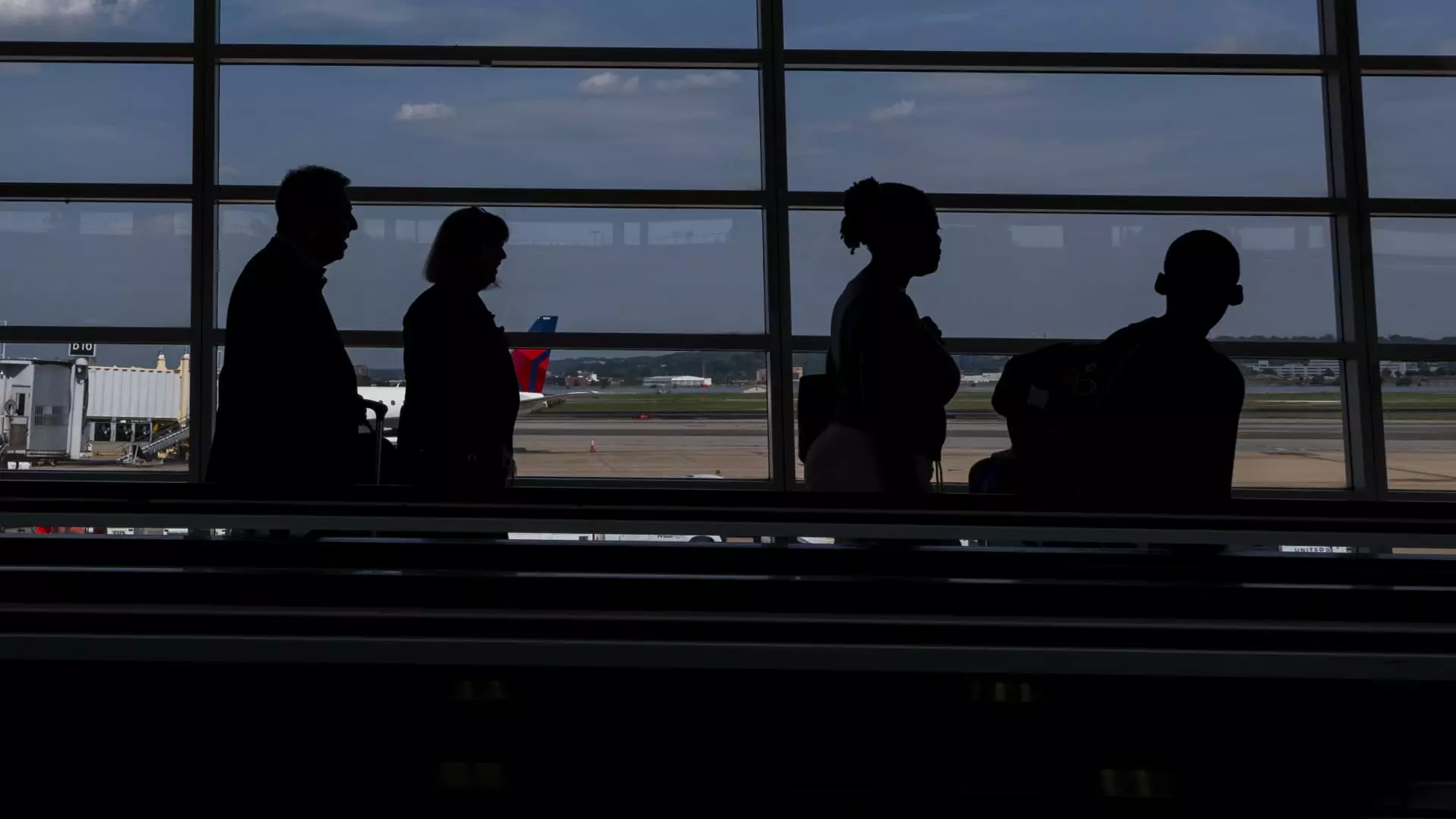The landscape of travel around significant national events is changing significantly, particularly as we approach the upcoming elections in 2024. A case in point is the story of Emily Reeve, a 32-year-old mother from Portland, Oregon. Typically known for their adventurous Thanksgiving getaways—whether in Hawaii, Florida, or Disneyland—this year Reeve and her husband have opted to stay home. With a toddler in tow and an uncertain political climate ahead of Election Day on November 5, their decision reflects a broader trend among many American families. Concerns about potential unrest, such as riots or looting, have shifted consumer priorities as the election looms.
Indeed, Reeve’s stance is not an isolated one. A recent survey indicates that approximately 64% of U.S. adults are contemplating altering their travel plans due to unease surrounding possible unrest contingent upon the election results. This prospect has caused many Americans to think twice about their holiday travel destination choices, especially as federal authorities assure that their security protocols will suffice. However, the anxiety around the elections often overshadows these reassurances, corrupting the once-enjoyable anticipation of holiday travel.
Travel industry experts note a palpable sense of hesitation among consumers that resonates with Delta Air Lines CEO Ed Bastian’s observations. According to him, there is traditionally a “pause” in travel around election periods, as individuals prefer to avoid unnecessary risks and financial burdens until they have clarity about potential outcomes. Delta’s historical data confirms this pattern, particularly evident during the 2016 elections and the pandemic-affected 2020 vote, suggesting that consumers prioritize staying home over traveling amidst uncertainties.
With 38% of U.S. adults planning to travel this holiday season—an increase from 34% the previous year—one could argue that there remains a hunger for travel experiences among Americans. Yet this enthusiasm clashes with the political landscape weighing down decisions. Kelly Soderlund from Navan indicates that corporate travel plans are also suffering, as employers feel the intense duty of care for their employees. These pressures contribute to a marked decline in flight bookings around the election, shining a light on how politicized sentiments can decisively influence travel demand.
As the 2024 race continues to unfold, political tension has led to heightened security measures around polling stations and event venues. Reports of threats against poll workers and assassination attempts on candidates have fostered a climate of apprehension. The Transportation Security Administration (TSA) plans to increase security measures in the lead-up to the elections—measures that may not quite instill confidence in the traveling public but demonstrate the seriousness with which authorities are treating potential threats.
Moreover, travel agents are witnessing a significant transformation in their clients’ considerations. For many families, the potential for political tension spilling over into Thanksgiving gatherings looms large. A considerable portion of younger travelers—particularly Gen Z and millennials—express concern about political disagreements leading to disputes during family reunions. This anxiety may spur families to either avoid travel altogether or make arrangements that keep them safely within their comfort zones, further complicating the supportive nature of holiday gatherings.
For some individuals like Olivia MacLeod Dwinell, the desire to travel persists, but the driving motivations have shifted dramatically. With the threat of unrest and economic instability looming large post-election, the allure of distant destinations has been underscored by urgent practicalities. Dwinell’s recent trip to Europe—a preemptive escape rather than a celebratory retreat—illustrates how political dynamics can lead to unexpected travel decisions.
In another telling case, clients of Kimberly Kracun opted to halt their planned vacations due to economic uncertainties tied to their federal jobs. The looming threat of government shutdowns further intensifies the feeling of uncertainty, compelling individuals to rethink their summer plans. The juxtaposition of individuals wanting to seize travel opportunities against a backdrop of instability demonstrates how broader national events have begun to reshape personal liberties and lifestyle choices.
In a climate increasingly influenced by political sentiments and potential unrest, the American travel landscape is grappling with how to navigate this new reality. While the desire to gather and celebrate remains intact, the rising anxiety surrounding travel decisions portends a drastic shift in how families engage with holiday traditions. The once carefree holiday season has morphed into a complex interplay of security concerns, family dynamics, and personal choices influenced by larger societal events. Adjusting to this new normal will require consumers—and the travel industry—to remain vigilant and responsive to both political developments and their implications.

Leave a Reply